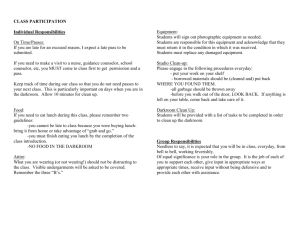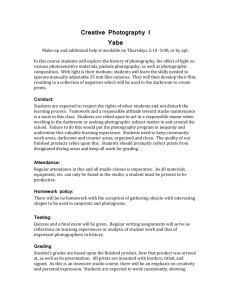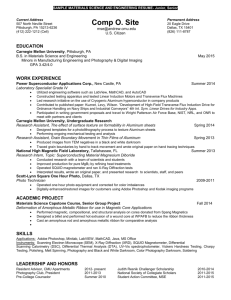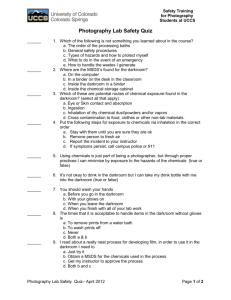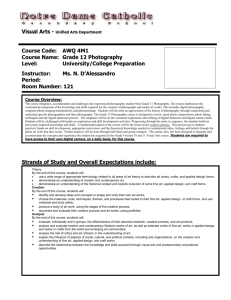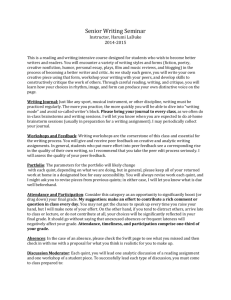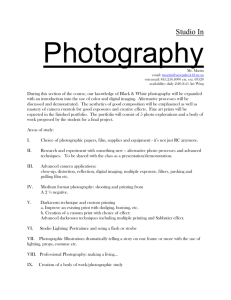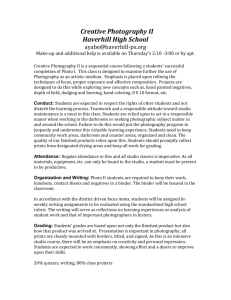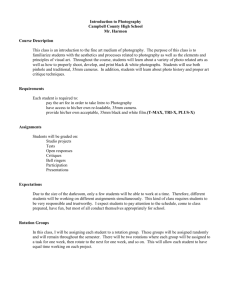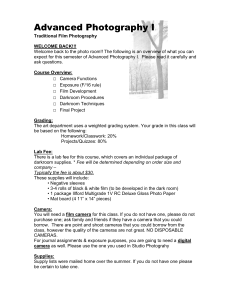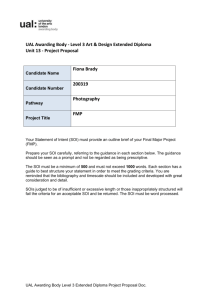Advanced Photography Intro Advanced Photography2014
advertisement
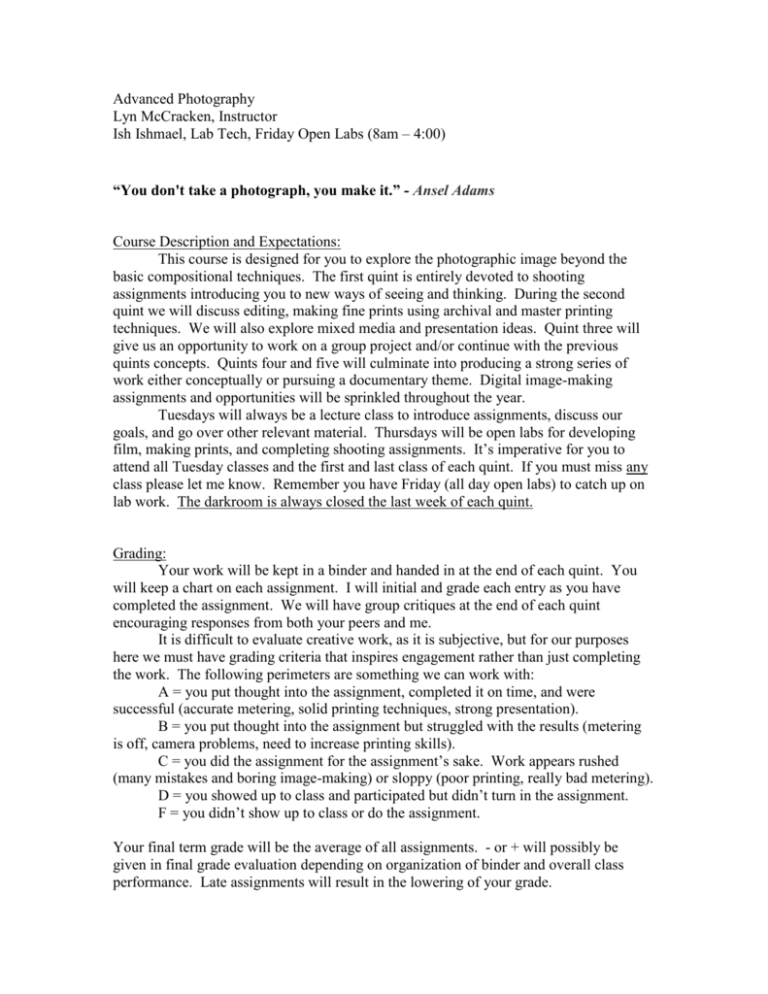
Advanced Photography Lyn McCracken, Instructor Ish Ishmael, Lab Tech, Friday Open Labs (8am – 4:00) “You don't take a photograph, you make it.” - Ansel Adams Course Description and Expectations: This course is designed for you to explore the photographic image beyond the basic compositional techniques. The first quint is entirely devoted to shooting assignments introducing you to new ways of seeing and thinking. During the second quint we will discuss editing, making fine prints using archival and master printing techniques. We will also explore mixed media and presentation ideas. Quint three will give us an opportunity to work on a group project and/or continue with the previous quints concepts. Quints four and five will culminate into producing a strong series of work either conceptually or pursuing a documentary theme. Digital image-making assignments and opportunities will be sprinkled throughout the year. Tuesdays will always be a lecture class to introduce assignments, discuss our goals, and go over other relevant material. Thursdays will be open labs for developing film, making prints, and completing shooting assignments. It’s imperative for you to attend all Tuesday classes and the first and last class of each quint. If you must miss any class please let me know. Remember you have Friday (all day open labs) to catch up on lab work. The darkroom is always closed the last week of each quint. Grading: Your work will be kept in a binder and handed in at the end of each quint. You will keep a chart on each assignment. I will initial and grade each entry as you have completed the assignment. We will have group critiques at the end of each quint encouraging responses from both your peers and me. It is difficult to evaluate creative work, as it is subjective, but for our purposes here we must have grading criteria that inspires engagement rather than just completing the work. The following perimeters are something we can work with: A = you put thought into the assignment, completed it on time, and were successful (accurate metering, solid printing techniques, strong presentation). B = you put thought into the assignment but struggled with the results (metering is off, camera problems, need to increase printing skills). C = you did the assignment for the assignment’s sake. Work appears rushed (many mistakes and boring image-making) or sloppy (poor printing, really bad metering). D = you showed up to class and participated but didn’t turn in the assignment. F = you didn’t show up to class or do the assignment. Your final term grade will be the average of all assignments. - or + will possibly be given in final grade evaluation depending on organization of binder and overall class performance. Late assignments will result in the lowering of your grade. Advanced Photography students should consider themselves stewards of the darkroom and photo lab. Please help keep the darkroom and classroom clean and mentor others when needed. Darkroom and Classroom Etiquette: 1. No food or drink in the Darkroom. Classroom is okay but not while developing film. 2. No cell phones visible in classroom or darkroom. If you need to use your cell phone, step out into the hallway. 3. You may listen to music either through headphones or use the darkroom CD player. If you use the darkroom CD player make sure everyone in the darkroom is fine with your music selection(s). 4. Don’t use other people’s supplies or go through their binders without their permission. 5. Leave work areas the way you found them (or even better). 6. If something is broken, let Ish or Lyn know. Things break and it might break when you’re using it. Don’t worry, we want to fix it. Supplies: Materials needed to successfully complete this course will be supplied by NWS Photo Program. Your book account will be charged $150 for these supplies. In some circumstances, depending on your usage or interest, you may need to purchase supplies on your own (film development, special types of film or paper). “Photography is an art of observation. It's about finding something interesting in an ordinary place... It has little to do with the things you see and everything to do with the way you see them.” Elliot Erwitt
